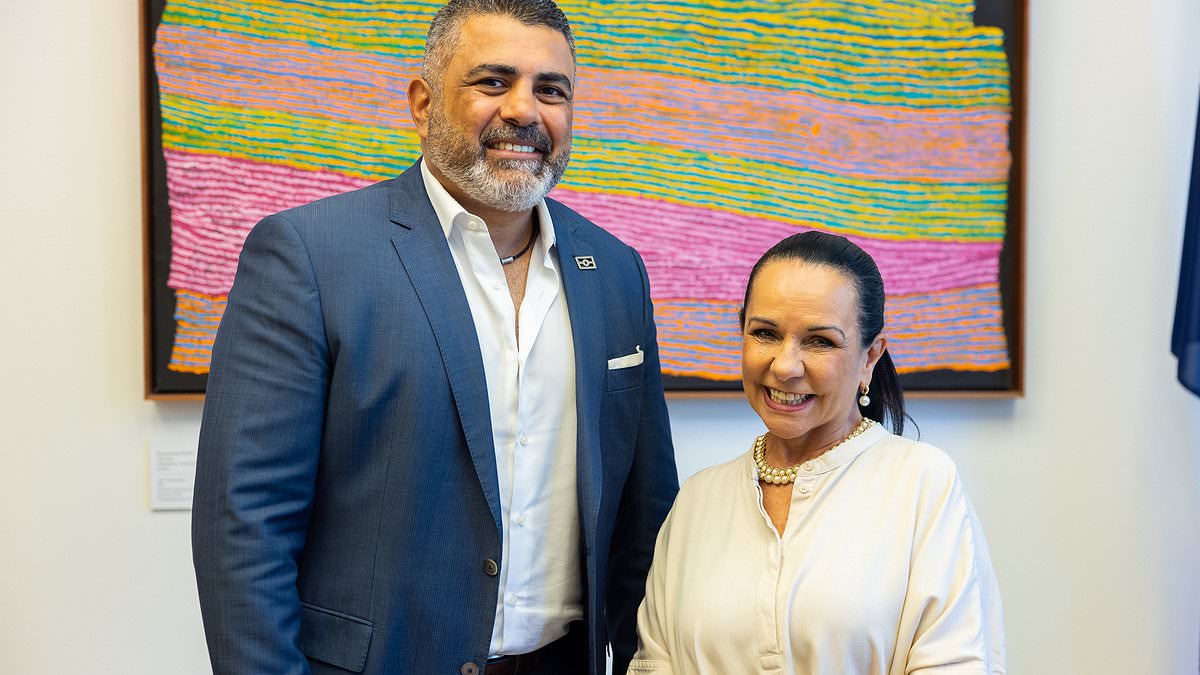Anthony Albanese was so confident the Indigenous Voice to Parliament would get up he appointed a world-first international ambassador for First Nations People.
The role was advertised with the explicit purpose of promoting the three principles of the Uluru Statement from the Heart on the world stage – Voice, a Treaty between Indigenous and non-Indigenous , and truth-telling about the nation’s past.
But while the Voice went down in flames – with 60 per cent voting No to changing the constitution at last October’s referendum – the taxpayer-funded role still has been filled.
Justin Mohamed was appointed to the job in March 2023, with a brief to promote the Voice and help shape an Indigenous ‘approach to foreign policy’.
In his first major interview on Friday, Mr Mohamed told the Sydney Morning Herald from Paris that he still travels the world speaking to First Nations communities.
‘The response I’ve had globally from many other First Nations groups, but also governments, has been both warm and curious,’ he told the Nine-owned newspaper.
But it’s challenging not having a blueprint to follow.
Mr Mohamed said he and his department, DFAT’s newly created Office of First Nations Engagement, ‘can’t head off over to another country to get a sense of how they established or what their priorities were or the path they walked’.
‘It comes with a bit of responsibility to ensure the first steps we take are the right ones.’
Prior to taking on his diplomatic role, Mr Mohamed served as CEO of Reconciliation and deputy secretary of Aboriginal Justice in Victoria.
In that role, he helped the state take steps toward creating a treaty.
His wife, Adjunct Professor Janine Mohamed, spent five years working as CEO of the Lowitja Institute, before this year leaving to take on a role as Deputy CEO (First Nations) for the National Disability Insurance Scheme.
When announcing his appointment, Indigenous ns Minister Linda Burney said: ‘This new position ensures, for the first time, that will have dedicated Indigenous representation in our international engagement.
‘Mr Mohamed will lead the Office of First Nations Engagement in the Department of Foreign Affairs and Trade.
‘Together they will work in genuine partnership with Aboriginal and Torres Strait Islander people to progress Indigenous rights globally, and help grow First Nations trade and investment.
‘Elevating the perspectives of First Nations people – this land’s first diplomats – enables deeper engagement with many of our closest partners including the Pacific family.’
Highly accomplished Indigenous leaders were encouraged to apply for the Ambassador position via an expressions of interest brief issued by the Department of Foreign Affairs.
It marked the first time an ambassadorial position was thrown open to the public.
According to the job description, DFAT was on the hunt for someone to ‘lead the Government’s efforts to embed Indigenous perspectives, experiences and interests into ’s foreign policy’.
Mr Mohamed, in his role, was expected to address ‘shared challenges such as health security, environmental management and climate change, and gender equality… based on the unique experiences and knowledge of First Nations people’.
He will: ‘Establish international First Nations dialogues on Voice, Treaty and Truth with likeminded countries to share experiences and knowledge of reconciliation processes and other First Nations issues, starting with New Zealand and Canada.’
He is currently in Paris for diplomatic talks at UNESCO, just a week after travelling to Hawaii for the Festival of Pacific Arts.
DFAT hopes Mr Mohamed and his department will ’embed n First Nations’ perspectives and experiences in all facets of its work’.
But in the wake of the Voice defeat just months after securing the appointment, Mr Mohamed confessed he wasn’t sure of his future in the job.
He said he woke up on October 15, like many other Indigenous ns, struggling to accept the outcome of the referendum.
From here on out, he says the entire world is watching.
‘It’s what does next and how we did it that counts. The world is watching… the spotlight’s on .
‘For all the right reasons and wrong reasons.’
